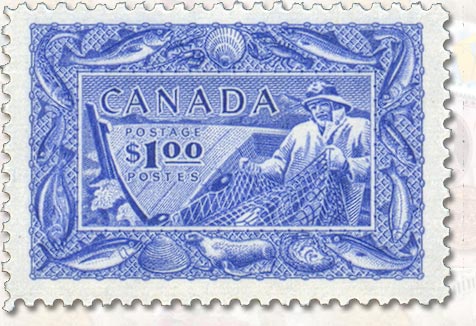A leading ocean conservation group sounded an alarm over the state of Canada’s fishery in a new report that reveals that less than 25 per cent of the country’s fish stocks are considered healthy and the status of almost half is unknown. The status of a whopping 45 per cent of stocks couldn’t be determined due to an absence of basic or up-to-date information, which the report attributed to a lack of transparency in Canada’s fisheries. The report called the latter a “long-standing problem, exacerbated by the previous federal government’s cuts to Canada’s once world-class fisheries science capacity and by the rigorously enforced policy of discouraging scientists from speaking about their work.
“This lack of transparency — and therefore public scrutiny — and absence of up-to-date information creates an environment in which it is all too easy for officials to ignore scientific advice and avoid the tough decisions required to rebuild vulnerable stocks.”
Josh Laughren, executive director of Oceana Canada - the organization that commissioned the research - called the findings extremely concerning.
"We need public scrutiny and accountability to ensure our fish populations are sustainably managed, and the political will to implement rebuilding plans where they are urgently needed,’ Laughren said in a statement.
“Fisheries and Oceans Canada has a responsibility to steward this precious resource, and they have to date been unwilling or unable to share basic information on the state our fish populations, and actions needed to bring them back."
The depletion of the Canada’s fisheries is a recent phenomenon, the bulk of it occurring within the span of a single lifetime, Laughren notes in his introduction to the report.
He calls it a story of too many boats chasing too few fish, of destructive gear and enormous waste, with science too often falling by the wayside.
“It’s not just cod numbers that plummeted. We’ve seen a drop in abundance of all kinds of species.”
The report titled Here's the Catch: How to Restore Abundance to Canada's Oceans, comes nearly 25 years after the collapse of the cod industry in 1992, which led to tens of thousands of people out of work and financial losses of $4 billion.
Currently, the Canadian seafood industry is concentrated on a few key species, including lobster, crab, shrimp and scallops, but the report says the lack of diversity in catches makes communities and economies vulnerable.
A lobster fishery collapse would be devastating, for instance, because the value of the shellfish is high and fishers would have no other options to turn to in the event of a collapse, the report said, citing the similar collapse in the early 2000s of Southern New England’s lobster fishery from disease and climate change.
The report noted that the challenges the researchers faced in compiling their information were “disturbing.”
The report’s authors, marine scientists Julia Baum and Susanna Fuller, spent months tracking down basic data from Fisheries and Oceans Canada, often from individual scientists. Even so, in some instances the information was unavailable because some scientists refused to share their data.
“Without this data, Canada cannot manage fish stocks properly or assess the health of our oceans. Nor can we judge the effectiveness.
Source: National Observer, June 23, 2016
http://www.nationalobserver.com/2016/06/23/news/canadas-fishery-severe-…

- Login om te reageren
